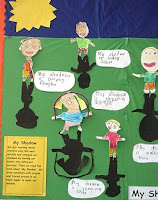Creative education in New Zealand is at risk.
It seems to me,from what I hear from friends still involved in teaching that education in New Zealand is in a sorry position.
 The big revolution in education was introduced with Tomorrows Schools in the 80s when New Zealand schools were made 'self managing' as part of the neo-liberal ideology of the government of the day - sadly a Labour government. The changes were premised on the mantra 'good people poor system' so, after several decades, what's changed?
The big revolution in education was introduced with Tomorrows Schools in the 80s when New Zealand schools were made 'self managing' as part of the neo-liberal ideology of the government of the day - sadly a Labour government. The changes were premised on the mantra 'good people poor system' so, after several decades, what's changed?In 2007 the then Labour government, realizing the error of their ways, introduced the current New Zealand Curriculum. Unfortunately the current National government has returned to the neo liberal path with a vengeance.
At the time I thought Tomorrows Schools was a good move. The idea of neighborhood schools, freed from the constraints of central government, seemed like democracy in action. The neo- liberal,, or 'market forces' ideology, was supposed to be all about allowing schools ( and other public services) to be more enterprising. Instead we have ended up with an oppressive competitive compliance culture
Wiser people like Kelvin Smythe warned about consequences of such actions at the time but he was ignored. Kelvin to this day fights the good fight and I am now with him - and, it seems, his voice is still ignored by school principals who see no alternative but to comply with government directives..
The most trenchant criticism of the direction the current government is taking schools feature in the NZPPF Magazine last year - could not have been clearer.
National Standards - the 'default' curriculum.
Now it is National Standards that determine education in our schools not the more liberal New Zealand Curriculum. The Standards are now in many schools the default curriculum
 |
| Time to return to implementing the New Zealand Curriculum |
The promise of democracy and creativity that some of us thought would eventuate has been all but lost. The so called 'nanny state' has been replaced by a technocratic 'big brother' surveillance culture - a culture where the 'voice' of teachers have been deliberately ignored. Teacher unions and principal groups have all but given up expressing a viable alternatives.
Communities of Schools or Communities of Control
 |
| The compliance culture |
Currently their is now the misguided focus on Maori/Pacifica achievement - misguided because of the focus on assessing achievement determined by National Standards/NCEA Level 2 achievement which ignore equally important attributes and talents such students might have.
'If you judge a fish by its ability to
climb a tree it will live its whole life believing it is stupid'. Einstein
So what does the NZC say?
 |
| ERO visit - comply or else! |
With all this in mind it is time schools refocused their attention on the vision of the New Zealand Curriculum and in particular the 'first half' of the document. The focus in the NZC is for schools to insure all students leave 'connected, actively involved, and lifelong learners'. National Standards will not achieve this vision.
'Seekers, users and creators of knowledge'.
For me the key aspects of being a lifelong learners is for students to be 'active seekers ,users and creators of knowledge'. School programmes need to place this at the centre of their programmes, or as the NZC says, 'place students at the centre of teaching and learning' by experiencing 'a curriculum that engages and challenges them'. and a curriculum that 'ensures that students' identity, languages, abilities are recognized and affirmed.'
There is a need to 're-frame' literacy and numeracy.
 A quick look at how schools use time will indicate if the NZC is central to learning. It is my observation that the great portion of time in primary schools is given over to literacy and numeracy - as one commentator has said 'it is as if the evil twins of literacy and numeracy have gobbled up the entire curriculum'. This not to say such areas are unimportant, quite the opposite, it is just that they need to be re-framed as vital skills in the realization of authentic learning challenges.
A quick look at how schools use time will indicate if the NZC is central to learning. It is my observation that the great portion of time in primary schools is given over to literacy and numeracy - as one commentator has said 'it is as if the evil twins of literacy and numeracy have gobbled up the entire curriculum'. This not to say such areas are unimportant, quite the opposite, it is just that they need to be re-framed as vital skills in the realization of authentic learning challenges.It would be asking too much to integrate literacy and numeracy but at the very least it should be re framed and seen as an opportunity to introduce skills and content that contribute to the inquiry programme..
 |
| Junior ideas about shadows |
The importance of the Key Competencies.
These are to be seen 'both an means and an end and the means other ends are achieved' and they are' to be developed over time'. The thinking competency is all about helping students 'make sense of information' ( a vital aspect of critical literacy) helping them 'constructing knowledge' and 'developing intellectual curiosity' by ensuring all students can actively seek, use, and create knowledge'. A quick read of student work will indicate if this is so. All too often shallow 'cut and paste' is the name of the 'inquiry game'.
Managing self is another key competency. This is about developing students develop ' a "can do" attitude so they see themselves as capable learners.
The importance of the Learning Areas.
With the current emphasis on National Standards studying Learning Area content in depth, as part of class studies, can be to easily neglected. Students 'researching' using Google is not enough and all too often leads to shallow or fragile learning. Every year students should experience a full range of the Learning Areas because such a range of experiences 'lays a foundation for later specialization' and, more importantly, provides opportunities to value, amplify and uncover students interests and talents.
 |
| Science - a vital area |
The NZC suggests that 'all learning should make of natural connections that exist between learning areas and link learning areas to values and key competencies'. Schools could develop a range of studies that combine any number of strands from the appropriate learning areas. Students, as they progress through school, should develop a positive appreciation of the essence of each area.
Whatever is chosen should be studied in depth, negotiated with the students, students' questions valued and their prior ideas appreciated.
The English Learning Area ( encompassing literacy) is 'fundamental to success across the curriculum and is all about requiring students to 'receive, process, and present ideas or information'. English is about 'making meaning of ideas or information' and
 |
| Value student voice |
A school developing such a programme is Mount Eden Normal. Island Bay is another such school.
An inquiry model to integrate all learning areas.
Although there is not a section defining inquiry learning is mentioned and integral to all learning areas. The essence of science is about 'investigating, understanding and explaining' it involves 'generating and testing ideas gathering evidence' 'making observations and carrying out investigations'.
This problem solving inquiry model is integral to all learning. In the Arts Learning Area the NZC states: ' ideas are generated and refined through cycles of action and reflection'; in the Maths Learning Area maths is to be seen as a way 'of thinking and solving problems', and 'investigating, interpreting, explaining and making sense'. Maths is an area where students 'learn to create models and predict outcomes, to conjecture to justify and verify'. The Social Science Learning Area has a similar inquiry approach. Students in this area are required to 'ask questions, gather information...to explore and analyse.. to consider .. and to reflect and evaluate'.
I would expect classrooms to reflect a diverse range of depth studies integrating, as appropriate, literacy and numeracy skills.
Effective Pedagogy is a vital section of the NZC.
Effective pedagogy includes 'enhancing the relevance of new learning'; 'makes connection to prior learning; and, most importantly, 'provides sufficient opportunities to learn'.

Opportunities to learn is the key to providing all learners with success not National Standards or NCEA targets.
The effective pedagogy statement emphasizes the importance of developing a positive learning culture , seeing the class as 'a learning community', the need for respectful relationships and the importance of 'encouraging reflective thought and action' .
Advice is given to ' cover less but cover it in greater depth'.
Teaching as Inquiry ( TAI)
An inquiry model is outlined for teachers to 'inquire into the impact of their teaching'. I would suggest that teachers inquire into how well the NZC is being implemented and in particular the various learning areas.
The School Curriculum.
 |
| Valuing the creative arts |
To implement the vision of the NZC requires 'a clear understanding of the intentions of the New Zealand Curriculum. 'All New Zealand students regardless of of where they are situated, should experience a rich and balanced education that embraces the intent of the New Zealand Curriculum'; and that the schools curriculum should respond to the 'particular needs, interest, and talents' of their students.
The NZC is based on the 'premise that all students can learn and succeed' and that each learners ultimate learning success is more important than the covering of particular achievement objectives, and, I would add the National Standards.
Assessment
The excellent assessment section has been distorted by the current reactionary and narrow demands of the National Standards.
An audit and surveillance culture is now part of our school system and has all but destroyed creativity and diversity in our schools and, in the process, the full implementation of the New Zealand Curriculum.
'The primary purpose of assessment is to improve students' learning' and that
assessment 'is best understood as on ongoing process that arises out of the interaction between teaching and learning'.
'Much of this evidence is 'of the moment" and 'often takes place in the mind of the teacher, who then uses the insights gained to shape their actions as they continue to work with their students.'
The 2007 New Zealand Curriculum has yet to be fully implemented – at best schools are tinkering around the edges – at worst totally distracted by the reactionary demands of National Standards.Jane Gilbert, in her book ‘Catching the Knowledge Wave’ NZCER reprinted 2008, writes, ‘we can’t do more of what we are currently doing… we cannot add new ideas to an old framework’. And adds we need to ‘develop a new public understanding about what we think and hope our education can do for people’.
Time to hunt out, dust down, re-read and implement creative vision of the New Zealand Curriculum before it is too late.
 |
| The alternative looks good to me! |
.

No comments:
Post a Comment